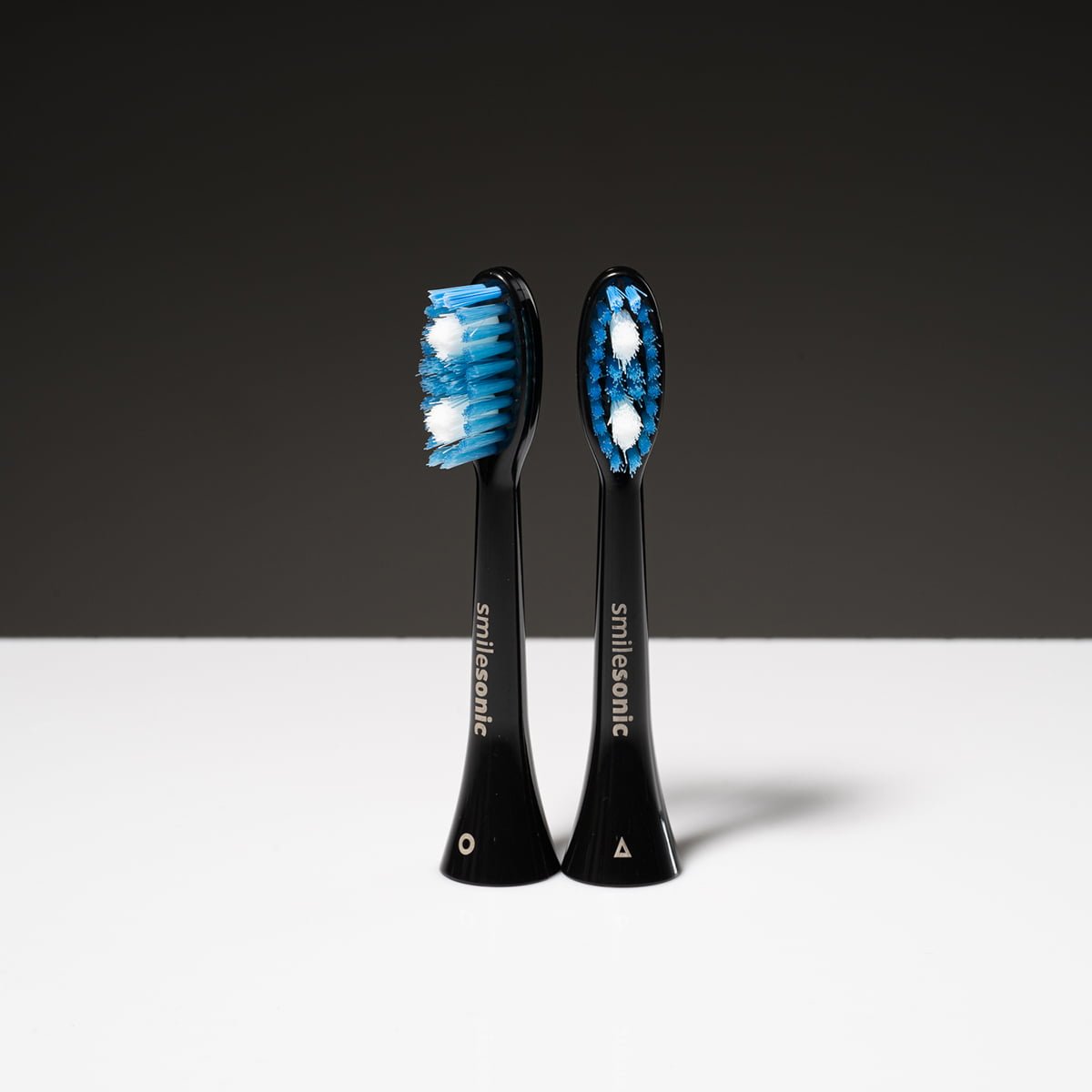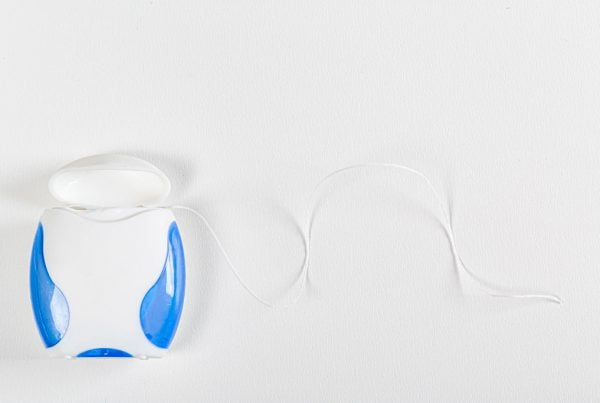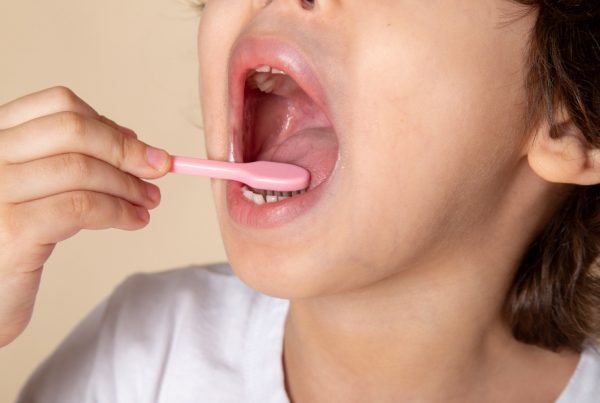Is it worth using a dental irrigator – water flosser or scaler, which is better for tackling tartar?
Maintaining full oral hygiene is the foundation of healthy teeth and gums. However, a toothbrush and toothpaste are not always enough to prevent plaque, deposits, or tartar buildup. There are various devices available on the market that help support dental care, such as dental water flossers and scalers. Each of these devices has a different function and can significantly improve the effectiveness of daily hygiene routines. What are the differences between them? Or maybe it’s worth investing in both?
 What is a water flosser and what should you know about it?
What is a water flosser and what should you know about it?
A dental water flosser is a device for daily oral hygiene that uses a pressurized stream of water to remove food particles and plaque from tight interdental spaces and along the gum line. It is especially recommended for people who wear braces, implants, bridges, or dentures, as it effectively cleans hard-to-reach areas such as gum pockets where brushes and floss may fail.
Types of water flossers for teeth cleaning
There are two main types of water flossers – countertop and portable. Which one should you choose? Let’s take a closer look.
Portable water flosser – ideal for travel and daily interdental care
This type of irrigator is powered by a built-in battery, allowing for convenient use without needing to plug it in. It’s ideal for travelers who value comfort and convenience, and it offers sufficient pressure settings without taking up much space in the bathroom.
Countertop water flosser – perfect for home use
Countertop water flossers are more advanced devices that are plugged into a power source. They have larger water tanks and offer a wider range of operating modes. They help eliminate plaque and deposits from the surface of the teeth, protecting against gum inflammation and periodontal disease. These models typically feature up to 10 pressure settings and include multiple tips.
Devices from brands like Panasonic, Philips Sonicare, and Oral-B offer comprehensive care for both teeth and gums. With replaceable nozzles and water streams, they effectively remove debris and bacteria for thorough cleaning. Portable models are convenient, and their pulsating streams gently massage the gums, making them more comfortable than traditional floss or manual toothbrushes.
Pros and cons of dental water flossers
The advantages of water flossers are undeniable. They are gentle on the gums, making them ideal for people with receding gums, sensitivity, or bleeding issues. Regular use supports the prevention of gum disease such as periodontitis. Plus, they’re easy to use and suitable for the whole family.
However, water flossers do have limitations. They can’t remove hard deposits or tartar. It’s best to use them as a supplement to brushing – not as a replacement for thorough cleaning. Additionally, regular use and proper maintenance are essential to achieving satisfying results.
What is a dental scaler?
A scaler is a tool designed to remove tartar and other hard deposits. Depending on the type, it can be ultrasonic or manual. Ultrasonic models use high-frequency vibrations to break up tartar, while manual ones require precise hand movements.
The biggest advantage of scalers is their ability to effectively remove hardened deposits that a toothbrush, floss, or water flosser cannot. Regular use helps prevent gum disease and improves the appearance of teeth by removing discoloration and buildup. Both professional and home-use models are available.
Still, scalers come with risks. They’re not meant for daily use – excessive use can damage enamel or irritate gums. Home-use devices require skill, as improper use may cause more harm than good. In severe cases, professional dental care might be necessary.
Comparison: water flosser vs. dental scaler
Let’s break down the key differences to help you choose the right tool.
1. Application
A water flosser is for daily rinsing of the mouth. It removes food debris and plaque using pressurized water, reaching between teeth and below the gum line. It’s recommended for people with braces, implants, bridges, and dentures. For best results, use it consistently.
A scaler is for periodic removal of hard tartar and plaque buildup. It may be manual or ultrasonic. It’s not suitable for daily use and serves more as a deep-cleaning tool than for daily hygiene.
2. Effectiveness
Water flossers are effective at gently cleaning tight spaces and preventing plaque buildup. However, they cannot remove hard deposits or existing tartar – they are preventive, not curative tools.
Scalers, on the other hand, are designed for removing existing tartar and hardened deposits, which can lead to gum inflammation or tooth decay. They complement daily care but do not replace it.
3. Frequency of use
Water flossers can be used daily, ideally as a complement to brushing and flossing. They’re great for people who want clean teeth and strong gums.
Scalers should be used only every few weeks or when needed. Overuse or improper use may damage enamel or irritate gums, so moderation is key.
4. Safety and ease of use
Water flossers are easy and safe to use, even for beginners. They’re suitable for anyone regardless of experience. The gentle water stream is perfect for sensitive users, and adjustable pressure settings allow for personalization.
Scalers require more precision. Improper use can harm enamel or gums. While home-use scalers can be effective, they won’t match professional cleanings. Beginners might struggle with safe usage.
5. Cost
Water flossers vary in price, but basic models are quite affordable. More advanced ones with extra features cost more but remain accessible. Ongoing costs mainly involve replacing tips.
Scalers, especially professional or high-quality home models, can be more expensive. Dental clinic-grade scalers offer the best results but come at a higher price.
6. Who are they for?
A water flosser is great for those with plaque buildup, bad breath, or orthodontic appliances.
A scaler is better for people who frequently develop tartar or have visible stains. It’s also a good solution for those wanting to avoid frequent professional cleanings.
7. Complementarity
These devices can work together as part of a comprehensive oral care routine. The water flosser is ideal for daily cleaning and prevention, while the scaler helps remove existing tartar. Using both may extend the time between dental visits.
READ MORE: Cleaning your tongue with a water flosser!
Is it worth having both devices?
Many people wonder whether to choose a flosser, scaler, or both. The answer depends on your individual needs. In fact, they complement each other well. The water flosser supports daily gum and tooth care, while the scaler handles periodic tartar removal.
The best routine may involve daily flossing with a water flosser and using the scaler once a month or as needed. Still, regular dental checkups are essential for maintaining good oral health.
Summary: water flosser or dental scaler?
Both the water flosser and dental scaler are highly useful tools that serve different roles in oral care. The flosser is perfect for everyday cleaning and gum care, while the scaler is ideal for removing tartar and deposits periodically. For comprehensive dental hygiene, investing in both may be the best choice.
Regardless of your preference, remember that your smile’s health also depends on regular dental visits and proper brushing techniques. A good addition is Redesept powder, which disinfects water flossers and other dental devices, maintaining the highest hygiene standards.





